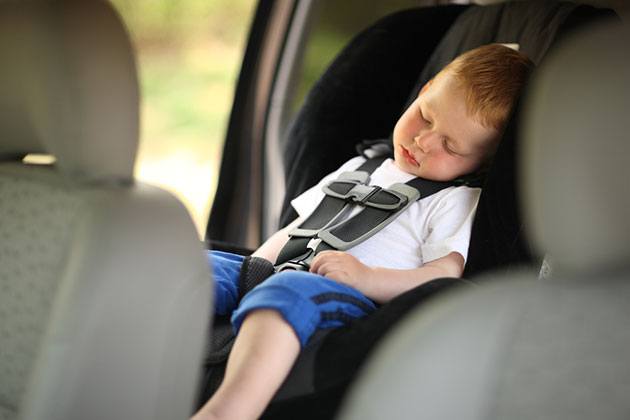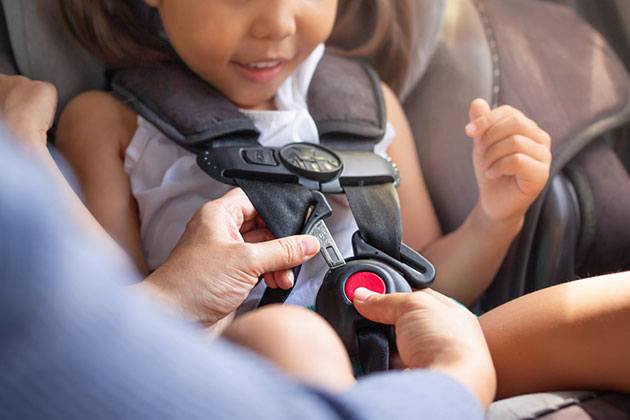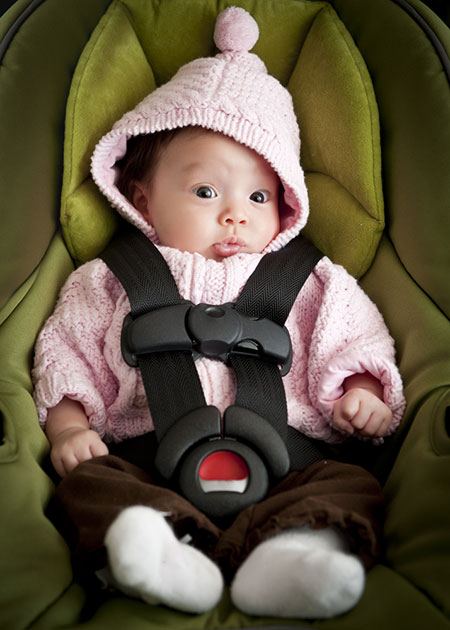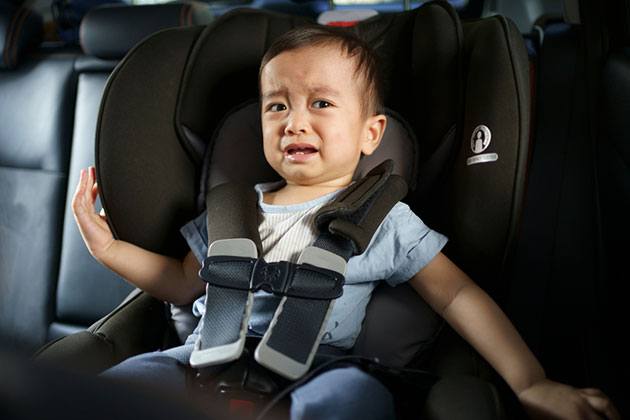Like in any other states, South Carolina has its child restraint law to ensure the children's safety and protection on the roads.
According to statistics, the use of safety seats can help reduce traffic-related fatalities for infants (71%) and toddlers (54%); thus, it is vital to follow the rules.
Over the past few years, the South Carolina car seat laws have had a few changes.
Let's give a quick look at the changes that occur.
South Carolina Car Seat Law

In general, the law states that children below eight years of age and below 4'9" in height should use a car seat or a booster seat positioned in the rear seat of the vehicle.
Children who are already eight years of age and at least 4'9" in height should use a booster seat or a safety belt when riding a motor vehicle.
Now let's take a more in-depth look at the South Carolina car seat laws to ensure the child's safety while on the road.
Here are the rules that parents must follow to avoid any penalties and more serious problems:
1. Rear-Facing Car Seats
Babies and toddlers who are younger than two years old must use a rear-facing car seat to ensure safety and protection in case of an accident.
Parents are recommended to get a rear-facing car seat that can handle larger height and weight requirements to keep the child in their first two years.
However, if the child outgrows the height and weight recommendations before reaching the age of two, then the use of the rear-facing car seat should be stopped.
2. Forward-Facing Car Seats
Children who are two years old or those who already outgrew infant car seats must start using a forward-facing car safety seat.
This type can be used until the child reaches four or up until the child can already move to a booster seat.
Many forward-facing car seats come in higher height and weight to safe use for a longer time.
3. Booster Seats
The booster seat law of South Carolina allows children who are at least four years old to ride on a booster seat once the forward-facing seat is already outgrown.
When using a booster seat, the child should use the lap and shoulder belt correctly.
Be sure that the lap belt fits perfectly on the lap and not up against the stomach.
Moreover, the shoulder belt should snugly fit over the child's chest, without even going under the child's arm.
While there are various types of booster seats, parents may choose a unit with an aback to help guide the seat belt in the correct position while offering extra protection.
4. Safety Belts
Children, eight years of age and 4'9" in height, may transition out using booster seats but instead use an adult safety belt.
The use of the safety belt can be done if the belt fits snugly across the child's hips and thighs while the shoulder belt rests properly on the chest.
It is also important that the child sit back on the cushion of the vehicle with the knees bent over the seat.
Penalties for Violations

Failure to abide by the car seat laws can result in fines or penalties for the parents.
A violation of the child passenger car seat will need to pay a traffic ticket, which costs $150 for each offense.
The fine or penalty can also be waived if the driver can produce evidence such as a purchase or acquisition of a car seat on or before the court date.
A fine of up to $25 can be charged for those violating the safety belt law.
This can't be suspended, and any violation is not considered a criminal offense; thus, it can't be reported to vehicle records or insurers.
IMPORTANT:
Law enforcement can't issue a citation unless another law is violated.
They are not allowed to arrest or put you in custody due to the violation of the car seat law unless you fail to pay the penalty or appear in court.
FAQs
Are there exceptions to the South Carolina car seat law?
Some of the exceptions to the car seat law include:
- If the child has a written verification that states an underlying medical condition.
- If the child is being transported in an emergency vehicle, church, school, daycare buses.
Do car seat laws apply to taxis?

The South Carolina car seat laws also apply when riding a taxi.
Parents are required to continue following the law, wherein the child must stay in a federally approved car seat during the entire ride.
However, taxi drivers are not required to provide an appropriate car seat; thus, it is best to bring your own when using taxi services.
Can a child occupy the front seat of the vehicle?
Under the South Carolina car seat law, all children below eight years old are required to sit at the back of the vehicle.
However, there are a few exceptions:
- If the child is riding in a vehicle without a back seat, such as a truck.
- If younger children are occupying all the rear seats.
IMPORTANT:
Apply safety precautions at all times when placing a child below eight years of age on the front seat.
Be sure to turn off the airbags, use the correct safety seat, and push the seat back away from the dash as far as possible.
Are there laws governing children with special needs?
Under the South Carolina car seat law, a child who cannot ride a standard car seat due to an underlying medical condition can use a specially designed child restraint system.
Some of the common medical conditions that require a special car seat include spica casts, tracheostomies, muscle abnormalities, and those with challenging behavior.
Buckle Buddies Program

The Buckle Buddies is a car set program of Prisma Health Hospitals, which helps families purchase car seats at more affordable costs.
This program aims to make car seats available for South Carolina's families while increasing children's safety during travel and reducing any risk of injuries and death.
Generally, the Buckle Buddies is open to the general public, including those that deliver at Prisma Health.
There are two discounts available:
1. Medicaid Discount: This gives parents and children car seat discounts by merely showing their Medicaid card.
2. Educational Discount: This discount applies to those who attend child safety classes. There is a varying discount depending on the kind of seat being purchased.
Final Thoughts
As a resident of South Carolina, you must follow the rules and regulations of the state.
Moreover, as responsible parents, it is essential to choose appropriate car seats and put them to proper use.
To do this, we've made a summary of the essentials when it comes to child safety when transporting in a motor vehicle.
These are just mere information to guide you and help you choose which car seat best suits your child.
Always remember that the first step towards protecting your child's safety and protection lies in your hands.
Buckle up and enjoy the ride!
